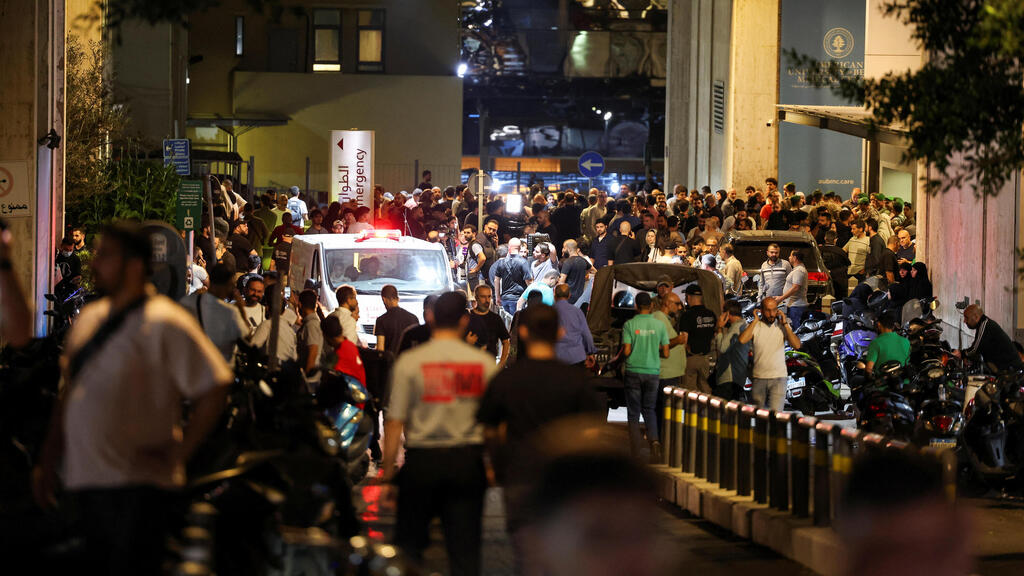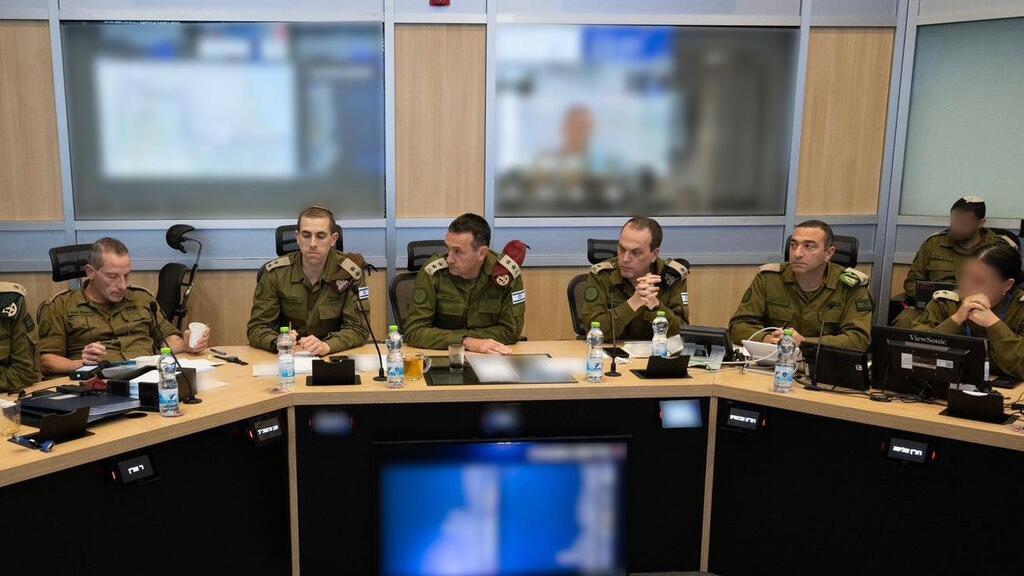Getting your Trinity Audio player ready...
Defense and security services are assessing the situation along Israel’s northern border following the explosion of thousands of pagers in Lebanon on Tuesday, which left at least 10 dead and over 3,000 wounded.
Hezbollah launched retaliatory strikes targeting the Galilee region, including communities around the Sea of Galilee, such as Tiberias. A hostile projectile was intercepted off the coast of Nahariya, while two others were intercepted over Tiberias.
2 View gallery


Bedlam in the streets of Beirut in aftermath of Hezbollah pager blasts
(Photo: Mohamed Azakir / Reuters)
A Hezbollah spokesperson, speaking to the Hezbollah-affiliated Lebanese newspaper Al Akhbar, described the attack as a severe blow to the Iran-backed terror group. "Within a minute, the enemy dealt one of its worst blows to Hezbollah since the conflict began," he said, adding that the operation showcased Israel’s technological and intelligence superiority, significantly disrupting Hezbollah’s communications.
"The enemy has pushed the resistance beyond the traditional rules of engagement that have held for a year. We are now facing a new reality," he said.
Security experts quoted in The Wall Street Journal and The Washington Post suggested the operation had been in the works for months. Emily Harding, deputy director of the International Security Program at the Center for Strategic and International Studies, downplayed the likelihood of a cyberattack, citing the “low-tech” nature of the pagers, which Hezbollah uses to avoid digital surveillance. “Since pagers don’t capture sound or have cameras, they pose less surveillance risk than cell phones,” she noted.
Meanwhile, The New York Times reported on the dire medical situation in southern Lebanon, with a doctor in Sidon describing a shortage of eye specialists, as many of the wounded suffered eye injuries from the blasts.
Although Israel has not claimed responsibility, officials believe Hezbollah is likely to retaliate, with Israeli leaders vowing a strong response to any further aggression. The IDF’s Northern Command has presented operational plans to Chief of Staff Lt. Gen. Herzi Halevi, including a potential ground incursion into Lebanon if war escalates.
Following the Security Cabinet's decision to add the safe return of residents displaced by the conflict to their homes, the IDF is shifting its focus to securing the northern border. Plans include creating a security buffer zone across the border to neutralize the Hezbollah threat to nearby Israeli communities.
International media outlets have reported that the Mossad may have planted explosives in the pagers used by Hezbollah, triggering the blasts when the devices overheated.
"Hezbollah should be deeply concerned about Israel's intelligence capabilities," Israeli officials said, noting that the operation attributed to Israel highlights only a fraction of its operational reach. "Hezbollah has underestimated Israel's resolve. While Israeli leaders may have hesitated at first, they are no longer holding back. Israel has built significant international legitimacy for its actions."



